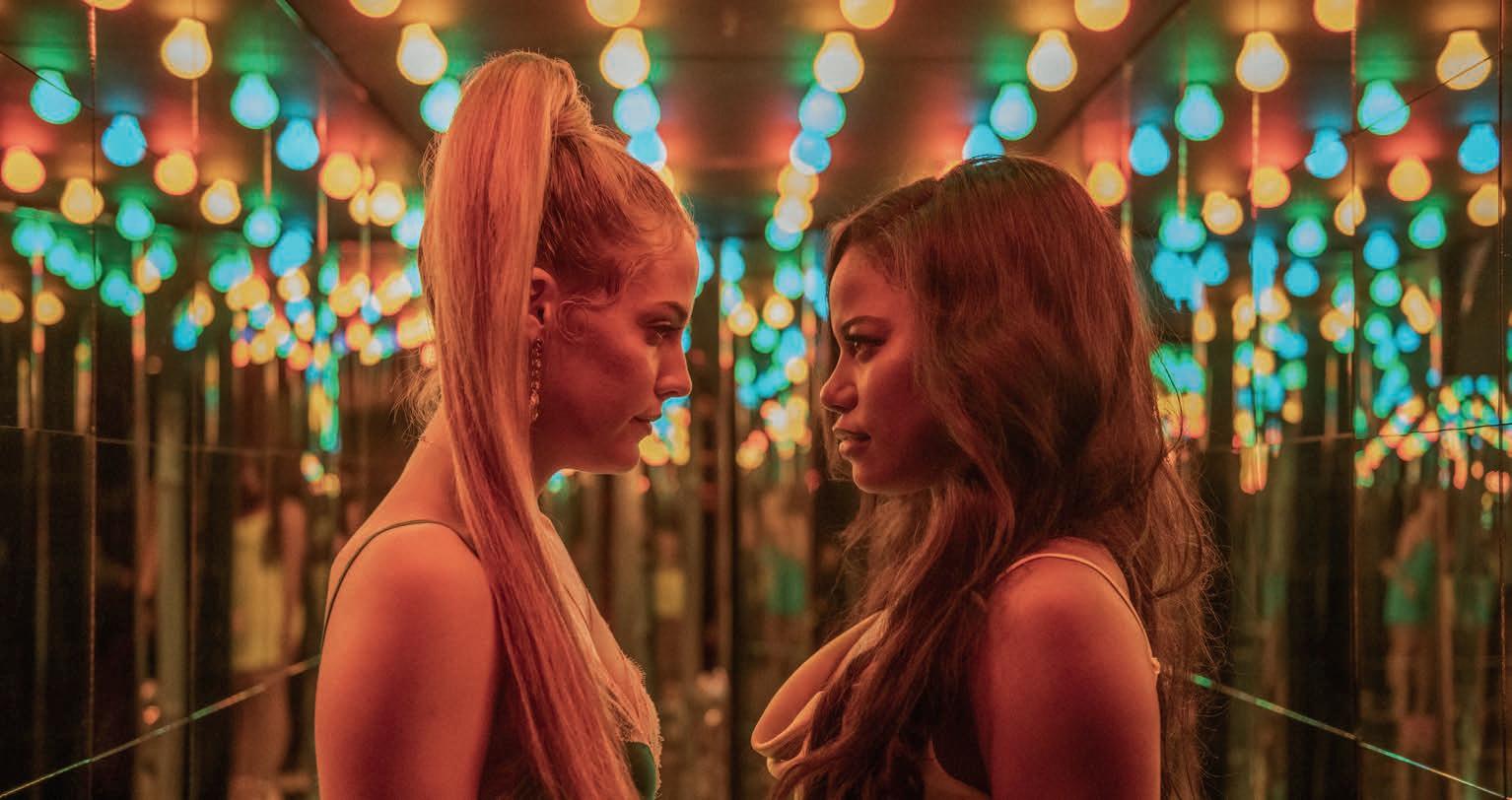The Secret to Making It
Seven A-list directors share their filmmaking insights By Benjamin Lindsay
EVER WONDER WHAT SPIKE LEE’S PHILOSOPHY IS FOR RUNNING A film set? What about how Greta Gerwig gets the best performances out of her actors? Or Janicza Bravo’s tips for becoming a filmmaker? It’s all right here.
l “Nobody is going to just
come and give you money unless you’ve proven yourself, especially if you’re doing something that is unconventional or unorthodox and outside the way the industry thinks. All I know is this: The reason I’ve gotten attention from this industry is that I just kept making films until they paid attention.” —Sean Baker (“The Florida Project,” “Red Rocket”)
l “Art is creating something
“ZOLA”: COURTESY ANNA KOORIS/A24
and presenting it so that other people can see it; so, inevitably, you’re always worried [about] whether people would like it or not. But because it is inevitable, I
think that people should just be faithful to themselves and try to satisfy themselves and respect their own obsessions.” —Bong Joon-ho (“Parasite”)
l “It’s OK to not know what
everything is, it’s OK to not know what everything is called, it’s OK to feel a little lost, and it’s OK to ask questions. Even if you feel you are in an environment that doesn’t support or cater to that, it’s OK.” —Janicza Bravo (“Zola”)
l “If you have reverence for the
art form, your fear of failure could come from not wanting to muck up something you love. But I think there’s a time when
the fear of not ever having tried is bigger than the fear of failure. And that’s when you get to work, because you realize you have fears on both sides; which one would you rather live with? You’ll make a bad movie or give a bad performance or write a bad song or make a bad painting. Because if you’re doing it, you’ll get some bad ones. That’s just the price of admission!” —Greta Gerwig (“Little Women,” “Lady Bird”)
l “When you do something
that strives for universality, it’s always better to find the universal within the specific instead of trying to make something generic.” —Luca Guadagnino (“We Are Who We Are,” “Call Me by Your Name”)
l “I approach [running a set]
as if I’m a coach—football, basketball, baseball manager— to try to put people in the best position so they can succeed. What the best teams have is the fusion of the seasoned, grizzled veterans, and you
gotta have youth. I love that mixture, because it plays against [itself and] gives me what I need: that friction, that tug with the different dynamics going against each other and with each other. Another thing to maybe help you understand my process: A lot of it is just the vibe. It’s the vibe; it’s the energy. Are we on the same frequency? And if you’re not on my frequency, can we find the right [one] together?” —Spike Lee (“Da 5 Bloods,” “BlacKkKlansman”)
l “[Before filming], we’re just
improvising, doing weird experiential games together so that we’re all melted down and there’s a lot of intimacy. When I [get] everyone together, we start the morning with a 9 a.m. dance party in my little office, with me dancing as weirdly as I can. We’re all kind of embarrassed and wiggly in front of each other. It sounds simple, but it’s actually really super important.” —Mike Mills (“C’mon C’mon,” “20th Century Women”)
Riley Keough and Taylour Paige in “Zola”
backstage.com
17
11.04.21 BACKSTAGE






